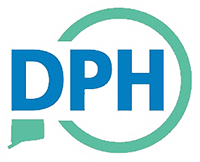FOR IMMEDIATE RELEASE: Oct. 21, 2024
CONTACT: Chris Boyle, Director of Communications
(860) 706-9654 – christopher.boyle@ct.gov
HARTFORD, Conn.— Oct. 20-26 is National Lead Poisoning Prevention Week (NLPPW). This campaign aims to bring together individuals, organizations, industry, and state, tribal, and local governments to reduce childhood exposure to lead by increasing lead poisoning prevention awareness and education.
“Lead poisoning is preventable, and there is no safe level of lead for children, so we are asking our health care providers and local health departments to spread information about this year's theme, ‘Bright futures begin lead-free,’” said Connecticut Department of Public Health (DPH) Commissioner Manisha Juthani, MD. “A child with lead poisoning may not show any visible signs and may look fine and healthy. This is why it is so important for parents to talk to the child’s health care provider and ask about getting a blood lead test, especially if they have been exposed to lead. Children are required to be tested annually between the ages of 9 months and 35 months as this age group is at the highest risk of exposure to lead hazards and early identification through testing provides them the opportunity to stay healthy.”
Commissioner Juthani added that over the summer, DPH launched the Lead Free CT campaign. The goal of the campaign is to protect children from the harmful health impacts of lead and creating a lead-free Connecticut.
While the overall impacts of lead on children in Connecticut continue to decline, there are still steps one can take to be lead safe. The NLPPW campaign is raising awareness in every community so that families can be empowered and take action to reduce lead exposure. Additionally, Connecticut residents are encouraged to contact their local health departments and see if there are any committees they can join to promote the Lead Free CT objectives which include:
- Encouraging parents, grandparents, and other caregivers to get a blood lead test for children younger than 6 years and pregnant people who may have been exposed to lead.
- Educating homeowners, landlords, and tenants on financial opportunities to help remove lead paint and lead hazards from their homes.
- Notifying community members that they should contact their local health department or water company to learn more about testing their water for lead.
- Identifying and replacing lead pipes that bring water to homes, childcare centers, and schools.
- Hiring lead-safe certified professionals to renovate pre-1978 homes.
For more information, please contact your local health department or visit LeadFreeCT.org.
-30-


